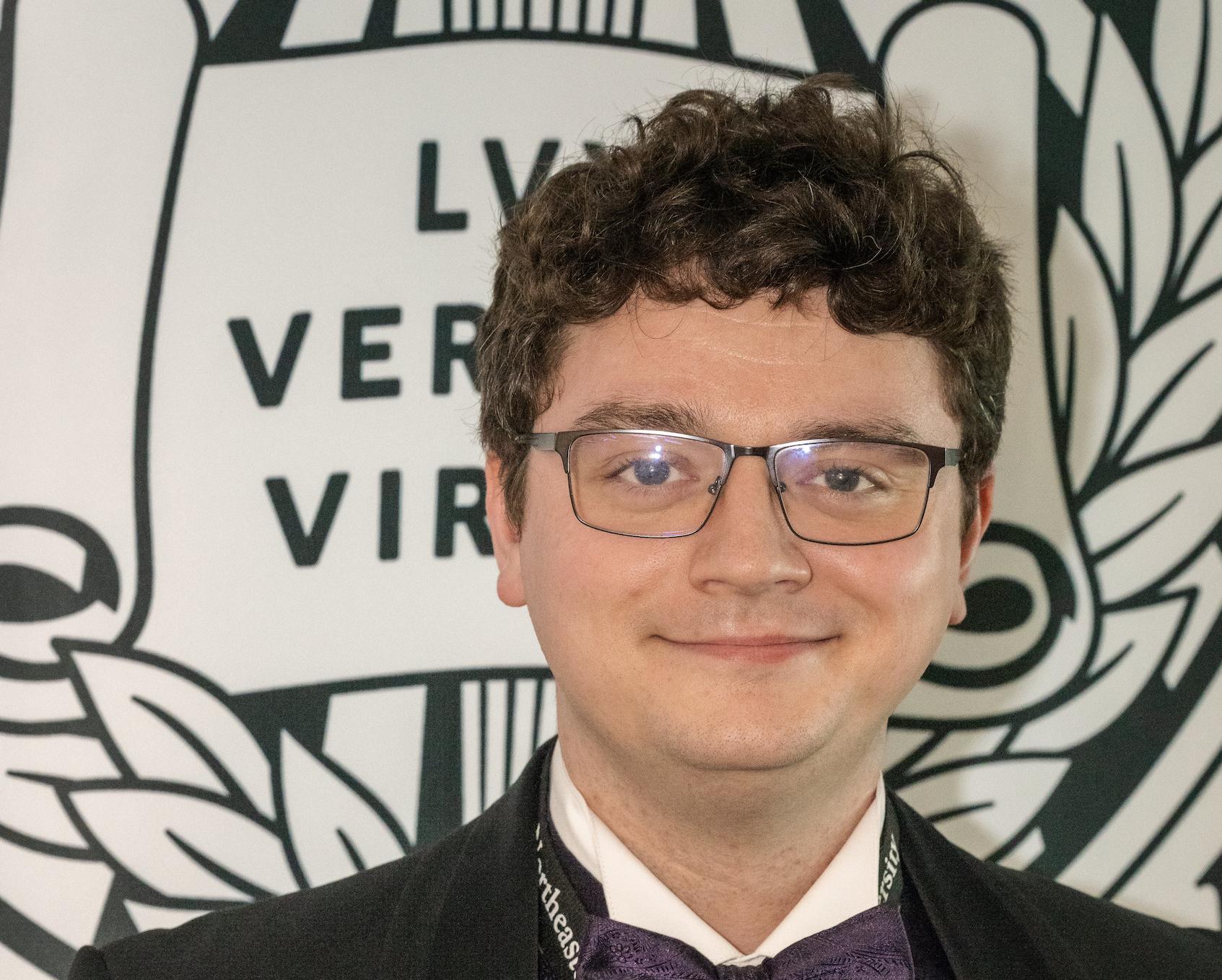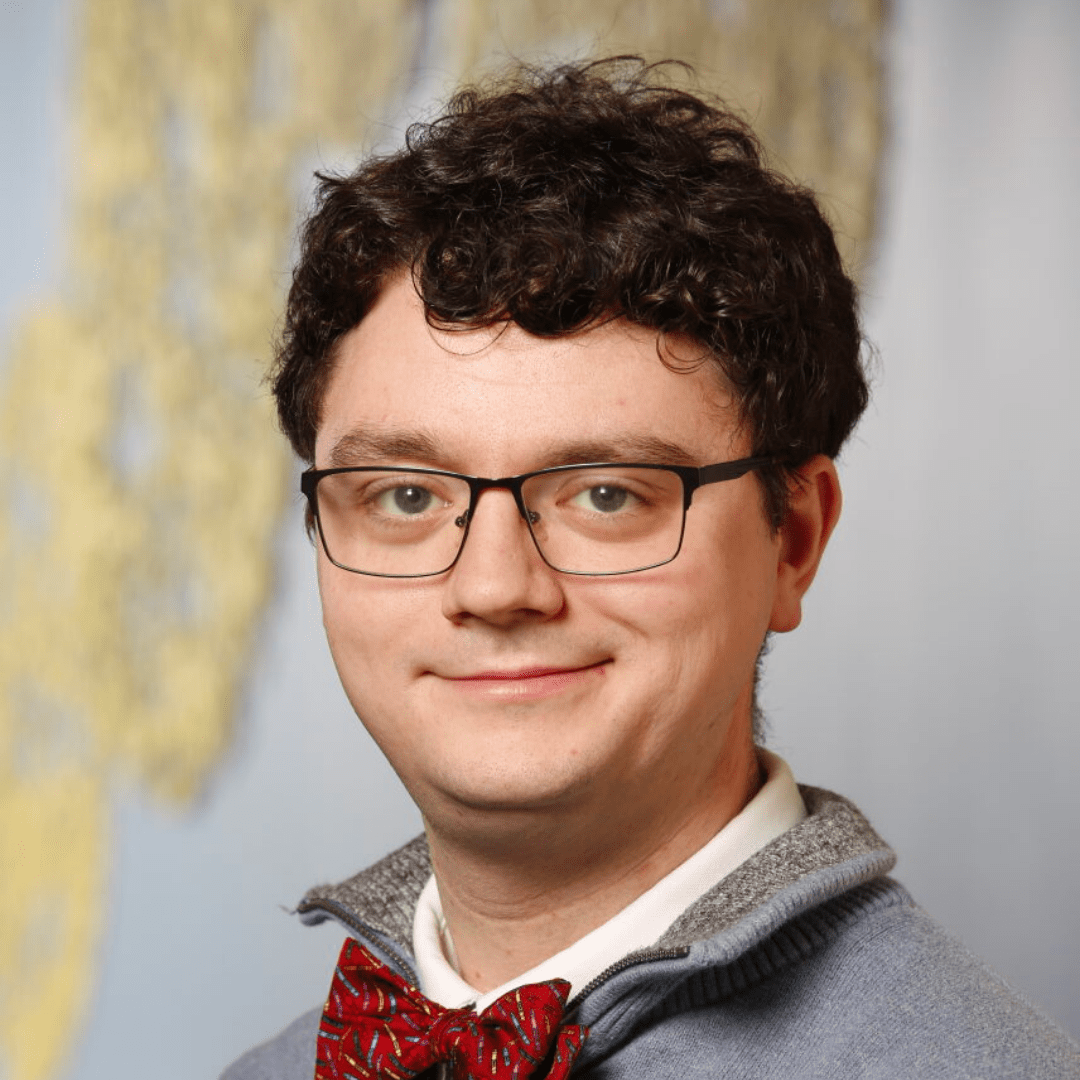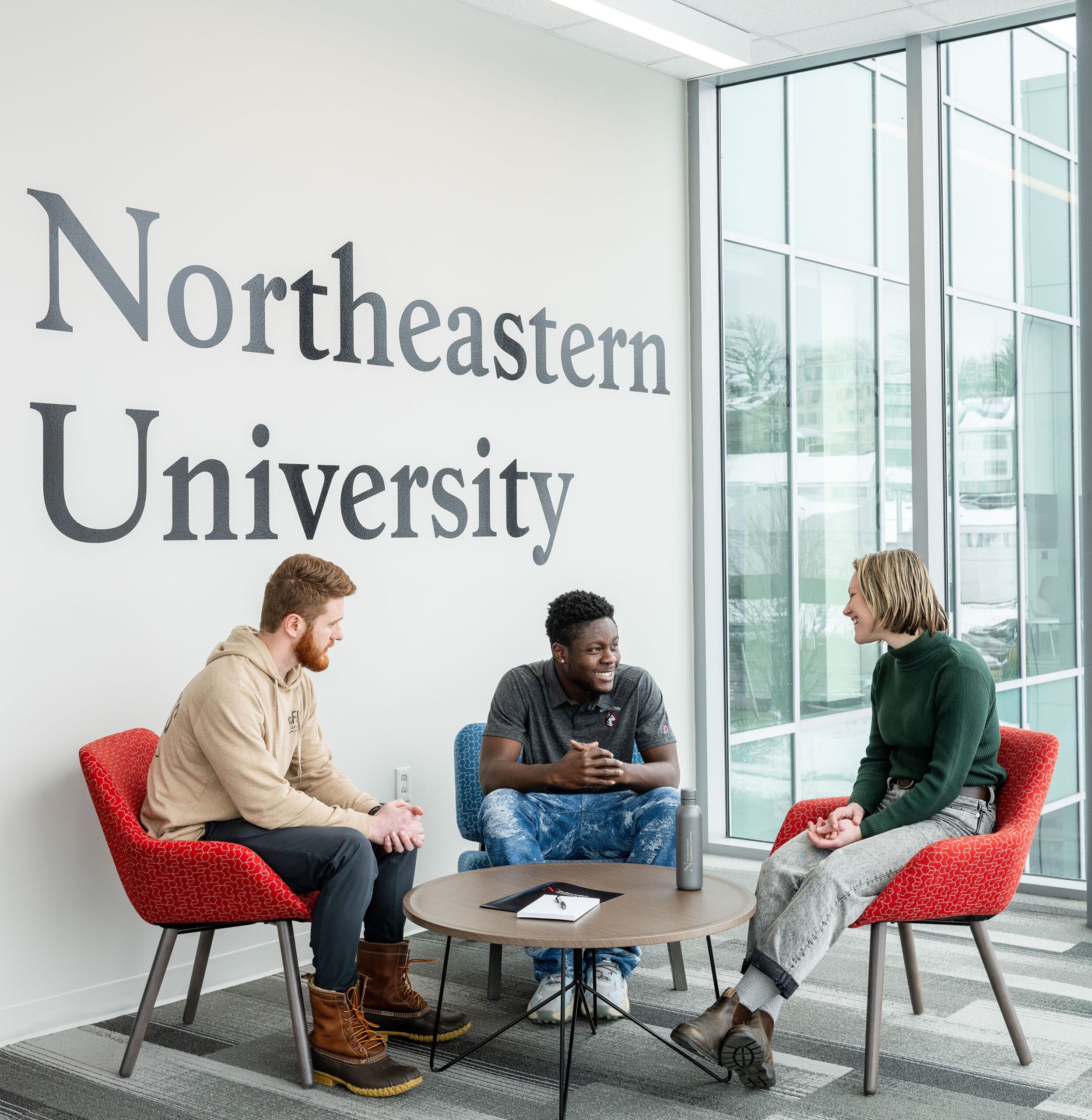
How Roux grad Greg Valcourt turned a lifelong passion into a career
Greg Valcourt has always loved computers. “At 16, I was running my own Minecraft server and putting together computers for fun,” he says.
But it wasn’t something he ever thought he’d pursue as a career. Valcourt, who graduated from St. Anslem College with an honors bachelor’s degree in history, was working as a consultation agent at Best Buy when he finally relented to the pestering of a Roux professor.
“My dad kept bothering me to come here,” Valcourt says, laughing. His father, Scott Valcourt, is an associate teaching professor of computer science at the Roux Institute at Northeastern University.
In 2020, Valcourt found himself reassessing his career and wondering if it was time for something new. In January of 2021, he took his father’s advice and enrolled in the Roux Institute’s Computer Science Align program – a program specifically designed for learners without a formal background in computer science.
Although it’s a bit daunting to pursue a master’s degree in a notoriously difficult field in which he had no previous education, Valcourt says that the key to success in the Align program is learning how to learn. “It’s being able to recognize, ‘this is what I need to figure out in order to succeed,’” Valcourt says. The Align program begins with bridge courses that are designed to bring students up to speed with the fundamentals of computer science before choosing their own pathway through the rest of the program, focusing on their areas of interest.
I really like the physical device itself. Making a whole machine ecosystem work, that’s really interesting and exciting to me.

GREG VALCOURT
Align Computer Science Graduate
Valcourt immersed himself in learning at the Roux Institute, choosing to focus on systems. “There are all these applications that run on devices, and it’s important that there are folks that make that happen, but I really like the physical device itself,” he says. “Making a whole machine ecosystem work, that’s really interesting and exciting to me.” Valcourt eventually started working as a teaching assistant for teaching professor Lindsay Jamieson, and as a tutor on campus, providing academic support to other learners in his program. Outside of classes and tutoring, he’s one of the founding members of the tabletop gaming student interest group, which meets monthly to play games like Boss Monster and Dungeons and Dragons, and which helps build community amongst graduate students.
The question everyone wants to ask: What is it like having your father as a professor? Valcourt took a handful of classes with his father, and the two occasionally carpooled to campus and shared lunches together. “The only difference between me and other students is I can complain to the professor after class,” Greg Valcourt jokes.
His family connection to his Roux learning doesn’t end with his father. He recently completed a project for his cybersecurity class with Dr. Gary Cantrell that was inspired by his twin sister who has Type 1 Diabetes. Valcourt used the project to help assuage his sister’s worry that her continuous glucose monitor, which uses Bluetooth technology to transfer her health data to her phone and then back to her insulin pump, might be vulnerable to hacking. Valcourt researched the security of Bluetooth and found that, although Bluetooth devices are discoverable, they’re highly encrypted, protecting users’ data from bad actors. The project is a fitting example of the Northeastern learning model, which encourages students to use their class projects to solve real problems affecting the people around them.
Valcourt began a full-time job as the systems administrator for the Roman Catholic Diocese of Portland in May. “My learnings from class have definitely helped me in this job,” Valcourt says, especially his cybersecurity and digital forensics classes with Dr. Cantrell. “The essential factors of any organization are cybersecurity and internal protections and knowing how those work,” Valcourt explains. He’s able to put his skills and knowledge into practice every day on the job and credits the Roux Institute for giving him an education that has brought his childhood passion for computers full circle, turning it into a fruitful, fulfilling career.
